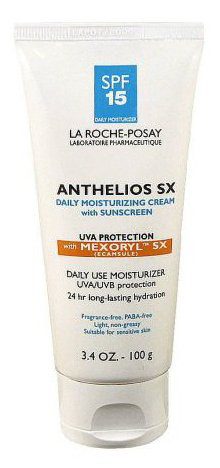

Target is quickly becoming one of our favorite destinations to shop for all things beauty.

If you buy a product we have recommended, we may receive affiliate commission, which in turn supports our work.

Even the best organic or mineral sunscreen can’t provide day-long protection from the sun’s strong rays without reapplication.As POPSUGAR editors, we independently select and write about stuff we love and think you'll like too. Regardless of what you prefer, the most important thing to consider is that reapplying your sunscreen throughout the day is key to its efficacy, as its effects diminish after about two hours of direct exposure to the sun. Though these two products act differently to protect your skin, both are extremely effective. Mineral sunscreens, on the other hand, contain mineral compounds such as zinc oxide and titanium dioxide, which block out UV rays and scatter them away from the skin. You should be using about a teaspoon-sized amount to sufficiently cover your face and neck.Ĭhoosing a sunscreen depends on your preference, but the good news is that you have options! Organic (sometimes called chemical sunscreens) work by absorbing UV rays and converting these into a small amount of heat.
LA ROCHE FACE SUNSCREEN SKIN
Providing your skin with the sun protection it needs starts with a generous amount of sunscreen. What’s most important is to apply sunscreen generously and often, based on what makes the most sense for your skincare routine. Many tend to apply their sunscreen after their moisturizer and just before makeup with both types of filters. For optimal sun protection benefits, look for a dermatologist-recommend sunscreen. Some of La Roche-Posay’s best moisturizers with an SPF provide an SPF of 30, which indicates excellent UVB protection, not to mention high UVA protection and a host of other skin-pampering benefits.ĭermatologists recommend using both a moisturizer and sunscreen-all the more so if the moisturizer contains an SPF-, but in order to be totally effective, a moisturizer with an SPF can’t go it alone. Health Canada and the Canadian Dermatology Association both recommend a minimum SPF of 30. Wearing a moisturizer with a sun protection factor (SPF) means you’ve already gotten into the habit of wearing products that shield your skin from the sun, and that’s something to celebrate! For the most part, SPF moisturizers contain a minimum SPF of 15, which, while adequate for everyday errand-running use, may not hold up to long periods spent outdoors. Though effective in their own right, sunscreens for the body aren’t formulated specifically for the face, so this texture might not be optimal. Finally, a sun care product developed exclusively for your face prevents early signs of aging like wrinkles or age spots. Non-comedogenic sunscreens sit beautifully on the skin and contain ingredients that won’t clog your pores or cause sensitive or acne-prone skin to flare up.Ī quality sunscreen for the face can also serve as a great base for your makeup-a tinted sun cream that mattifies the skin creates an ultra-smooth base for layering makeup. Like sunscreens for the body, the best sunscreen for the face can prevent sunburns, minimize signs of aging, and reduces the risk of skin cancer. The face is among the parts of our body that receive the most amount of sun exposure, which is why it requires protection from the sun’s harmful UVA and UVB rays. Proper sun protection is without a doubt the most important part of your skin and beauty routine, so be sure you’re treating your skin to the best products available. From sprays and creams to water-resistant sticks and fluid formulas, sun protection exists in many forms there are even sunscreens developed exclusively for the skin on your face.


 0 kommentar(er)
0 kommentar(er)
